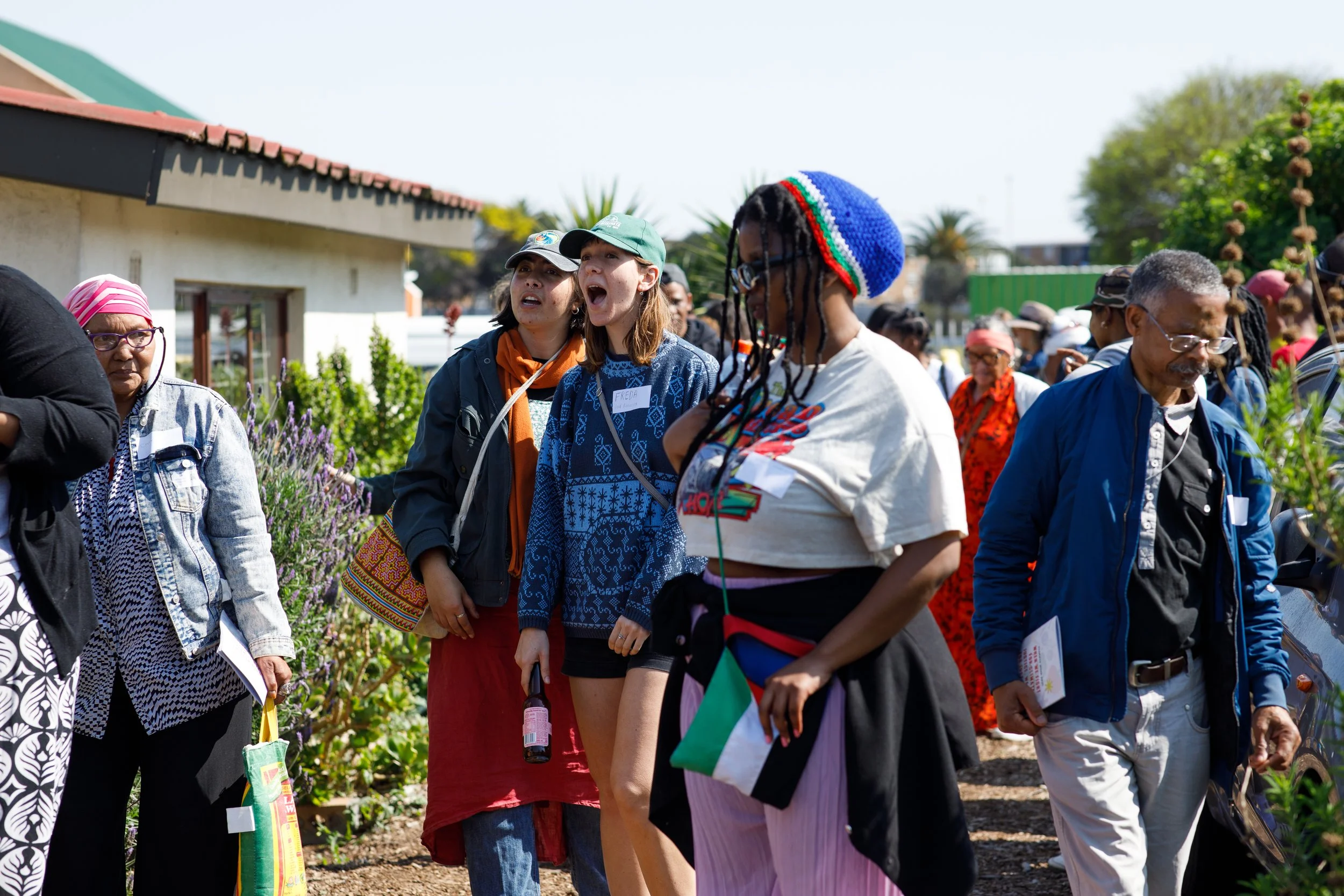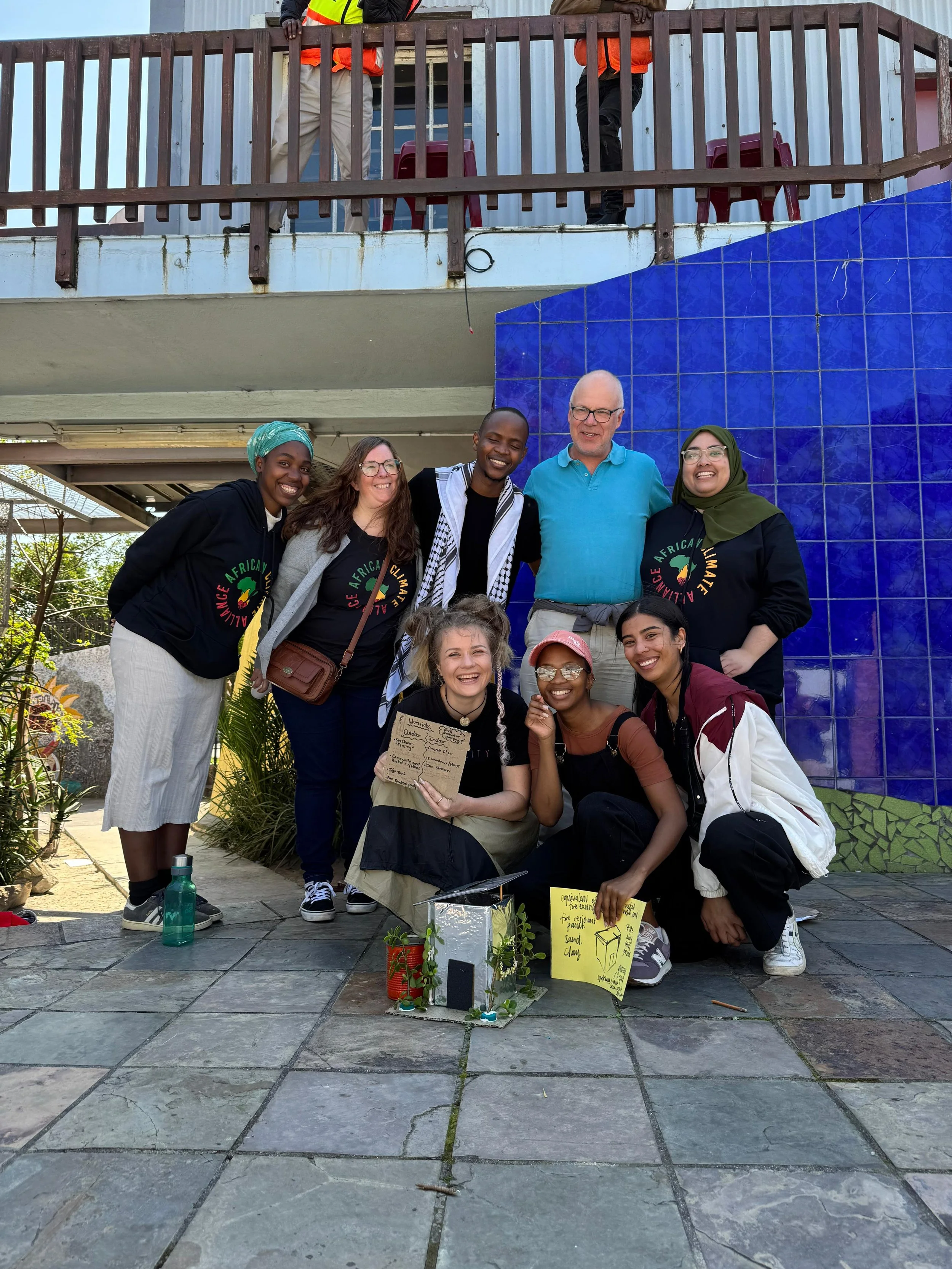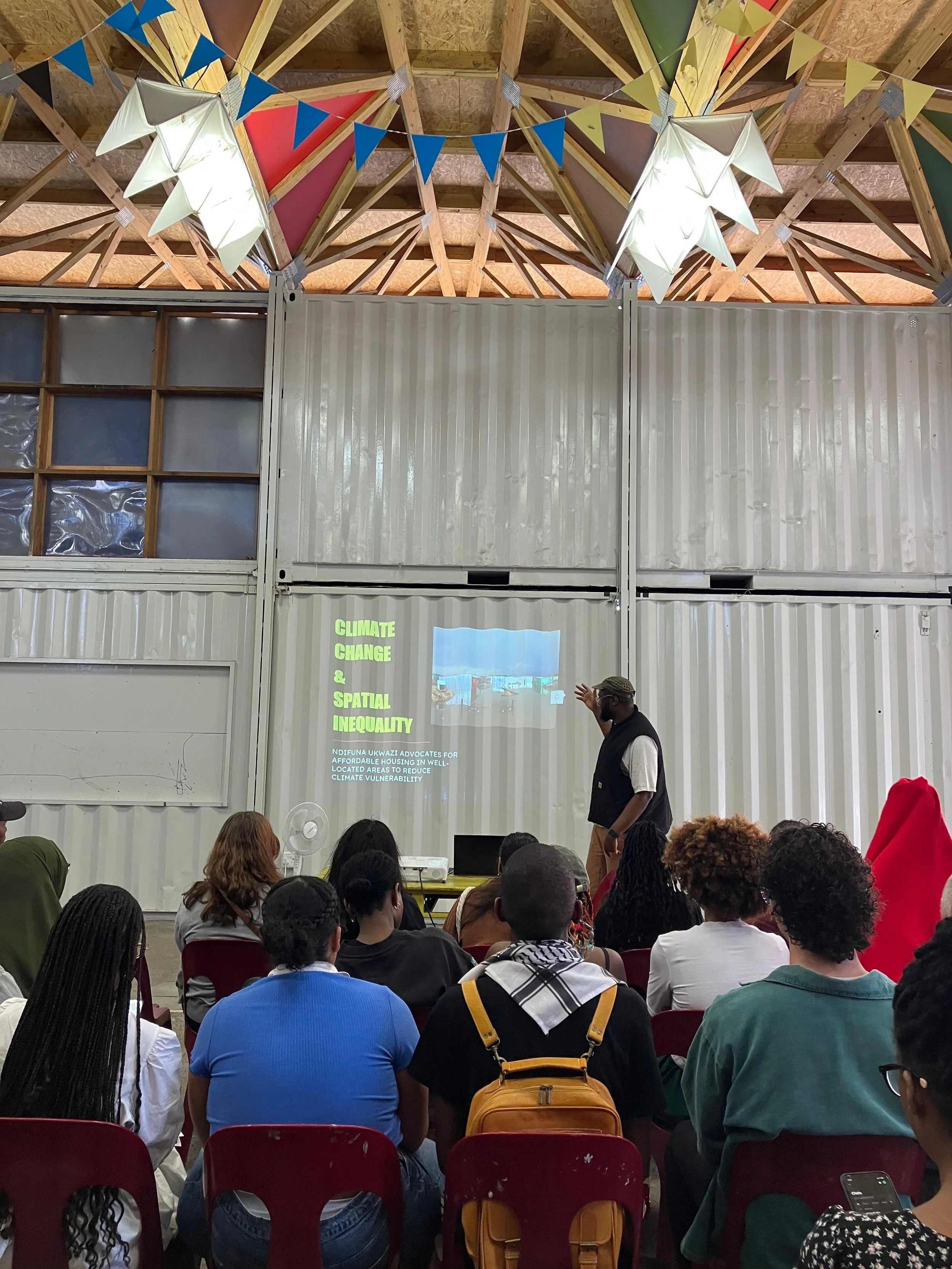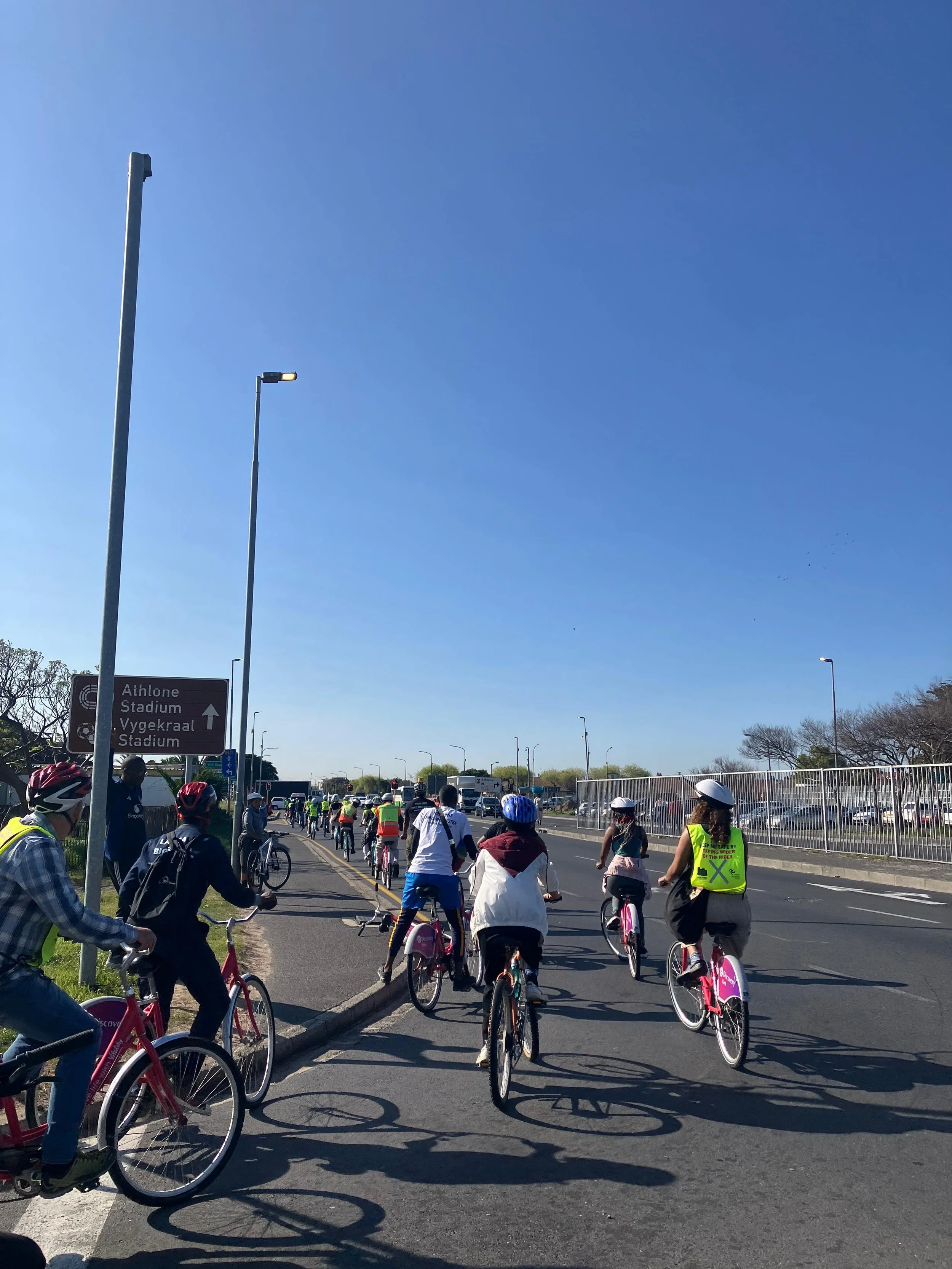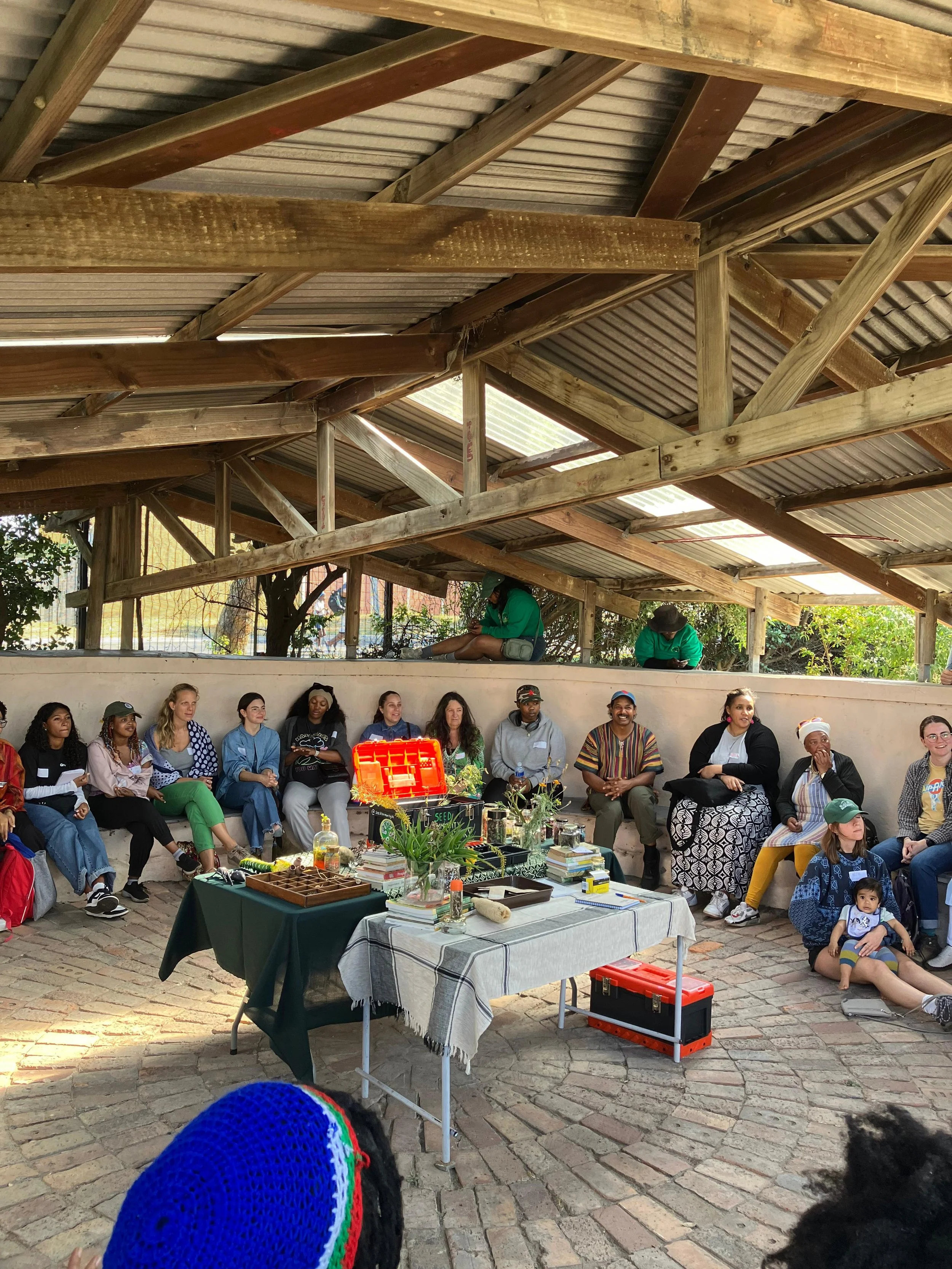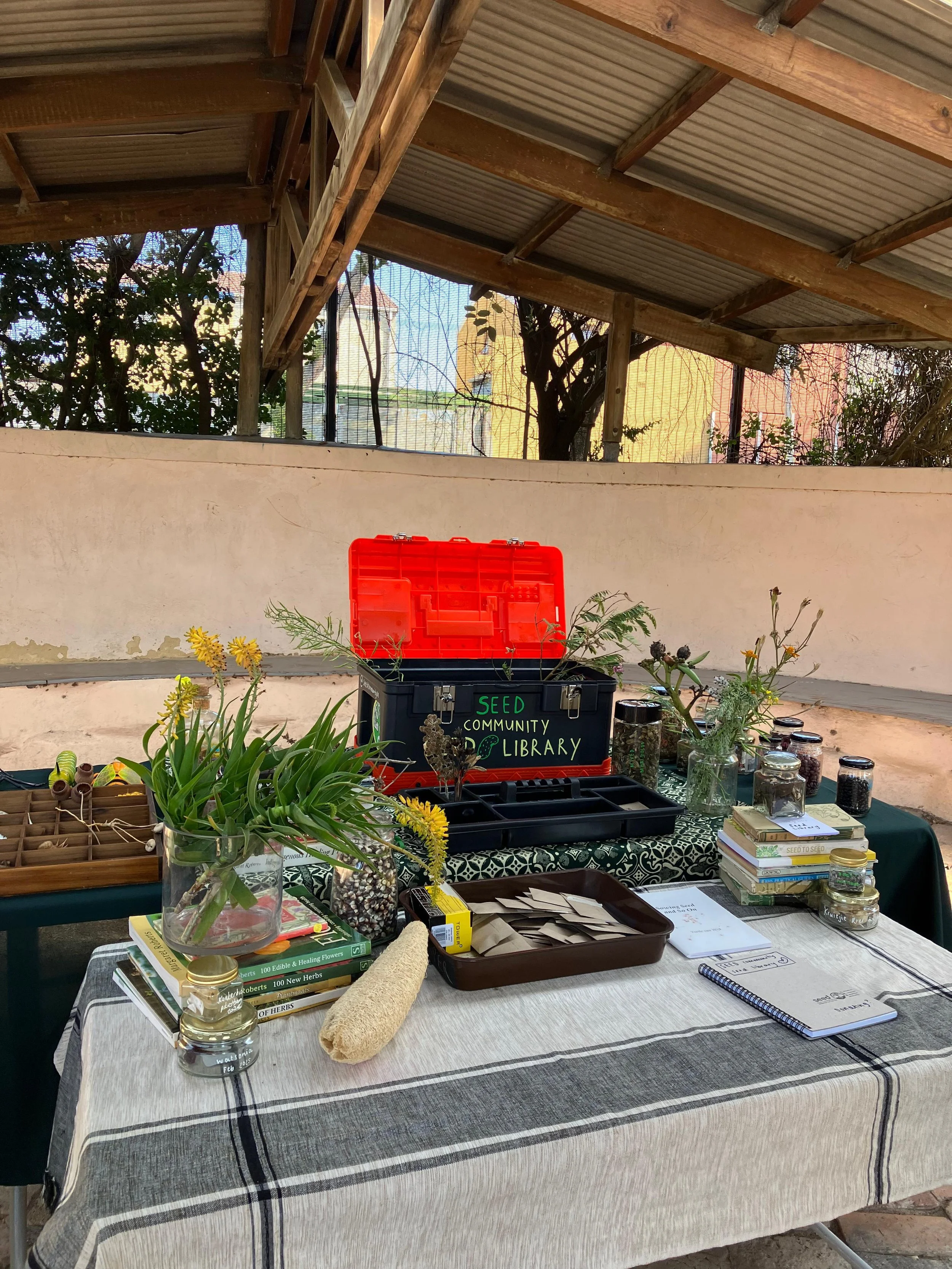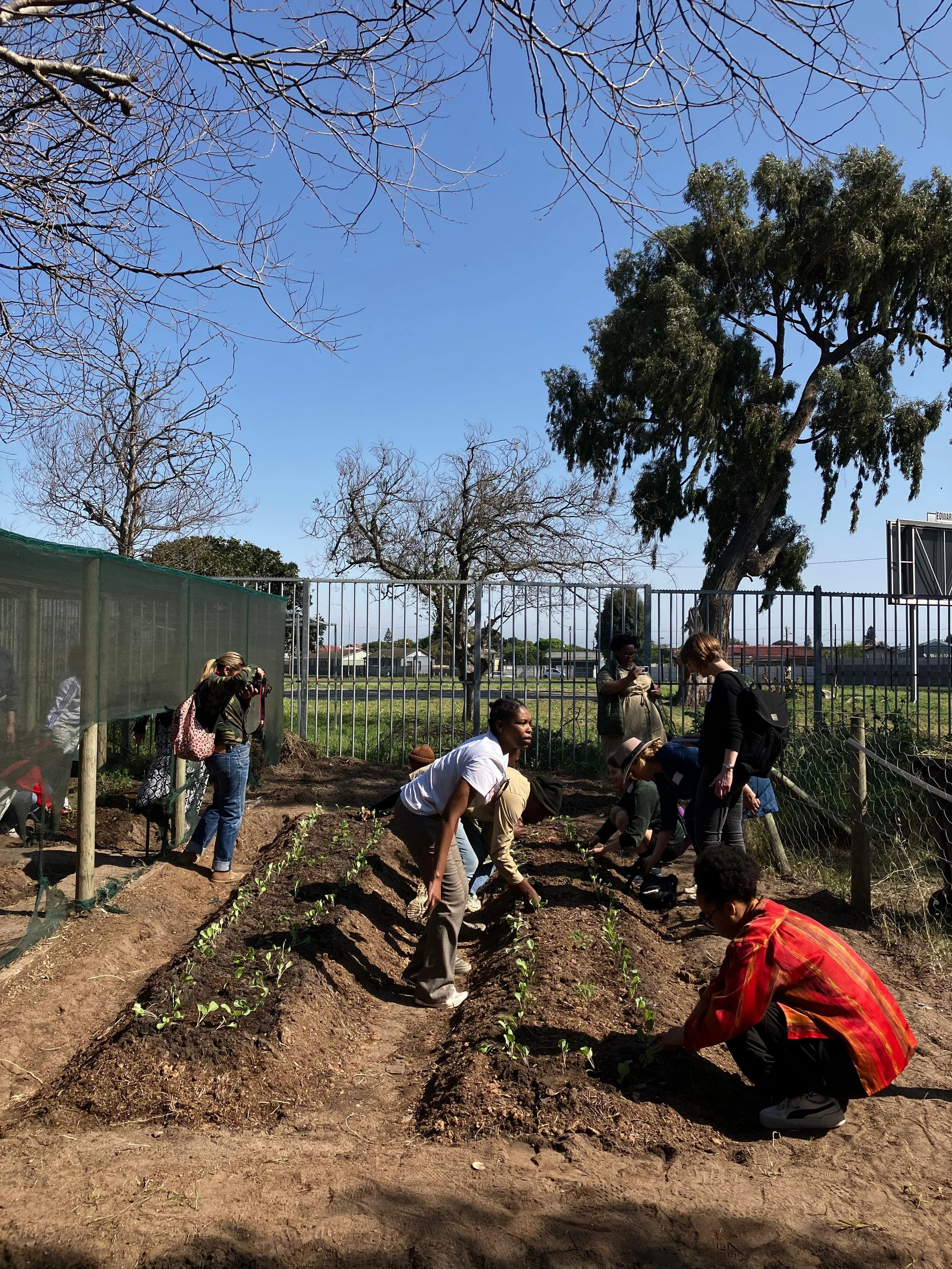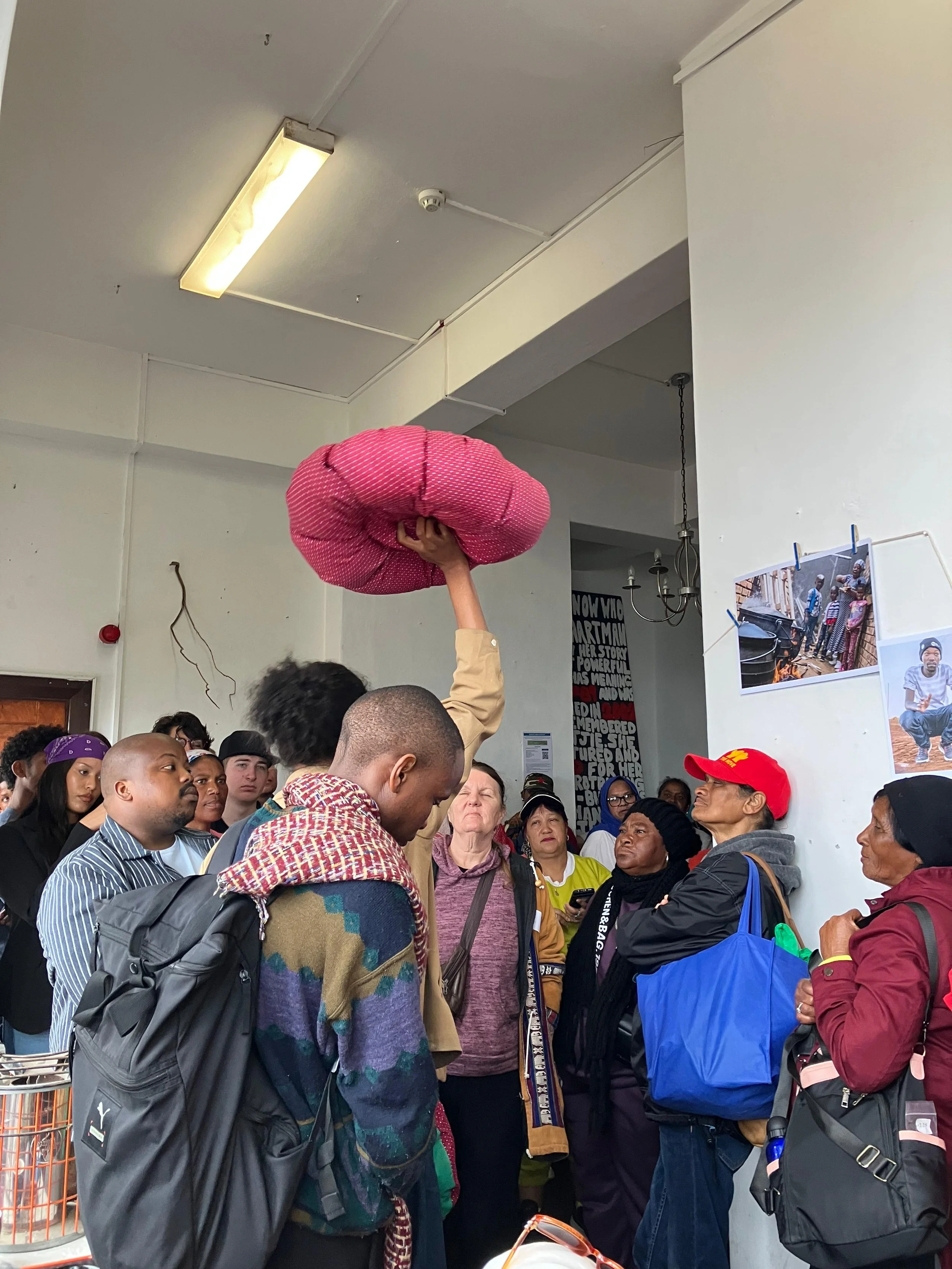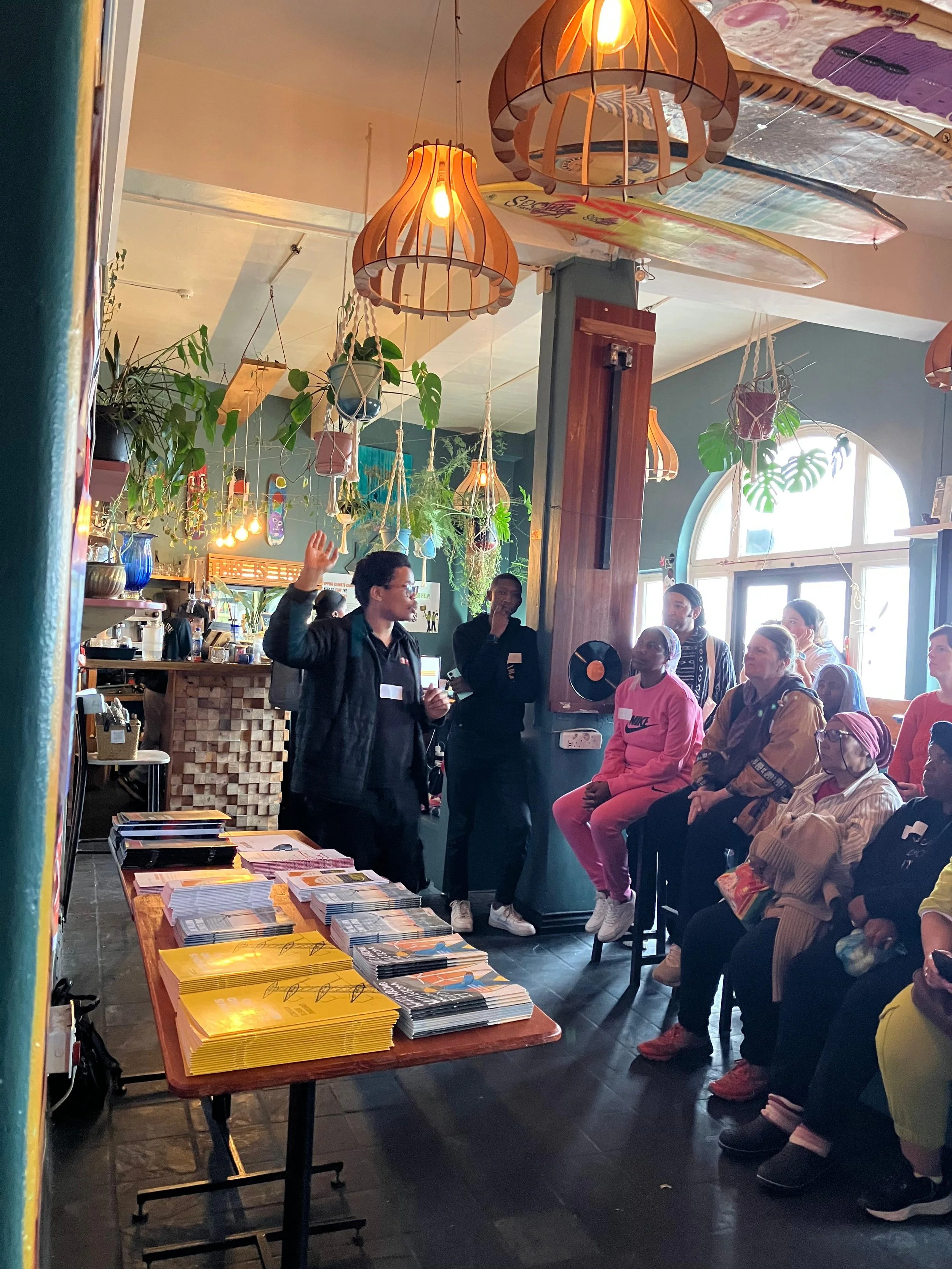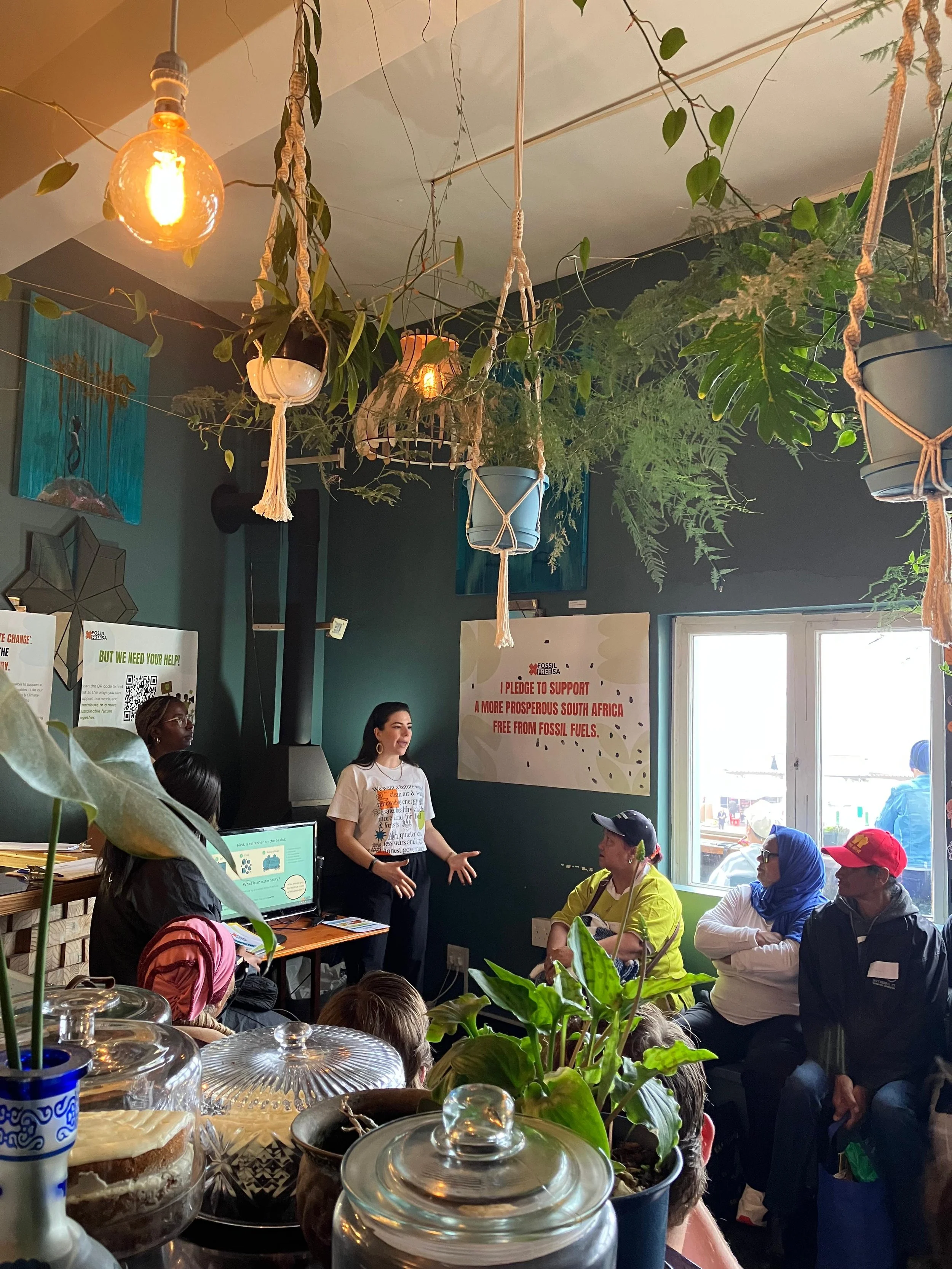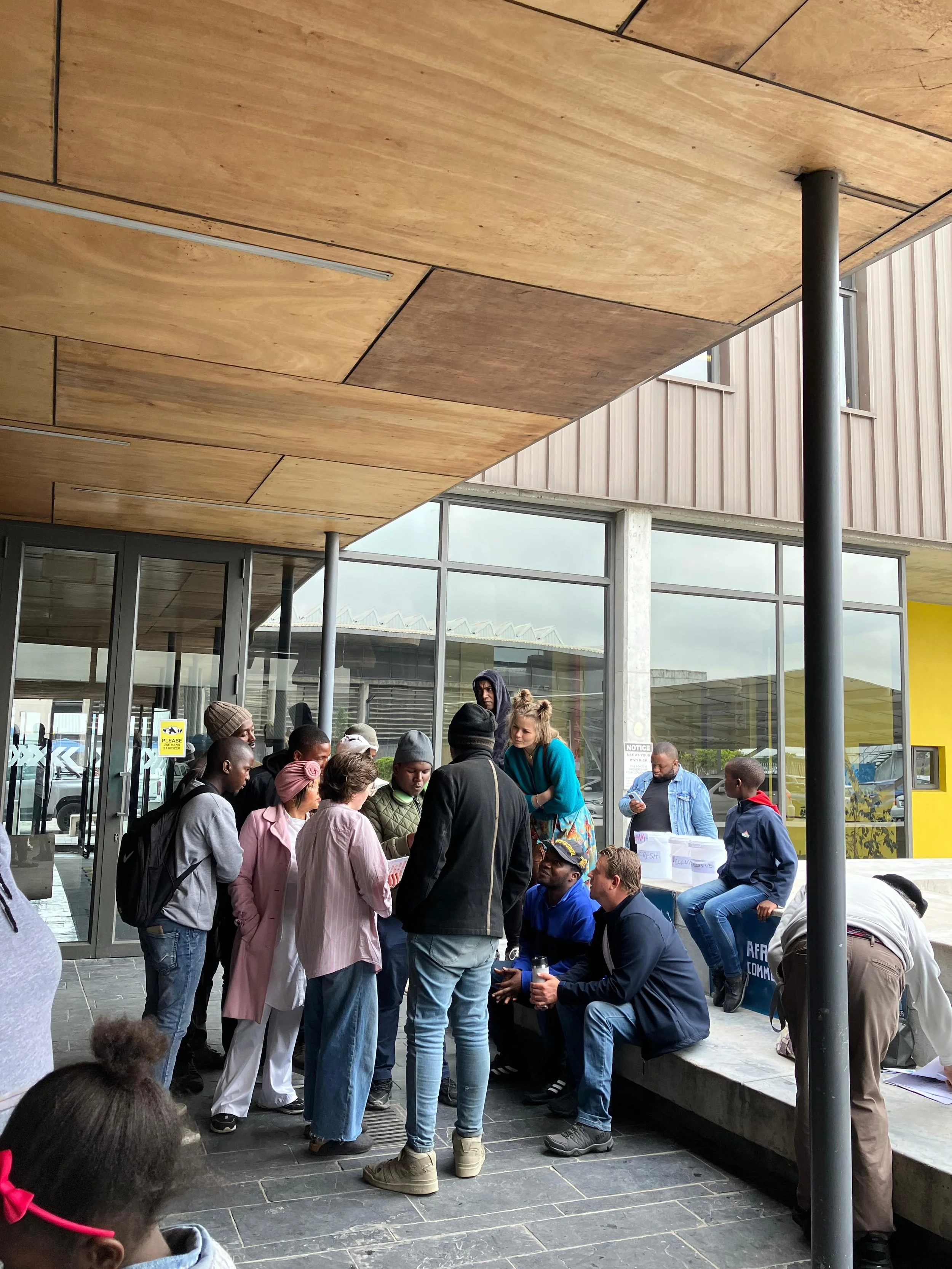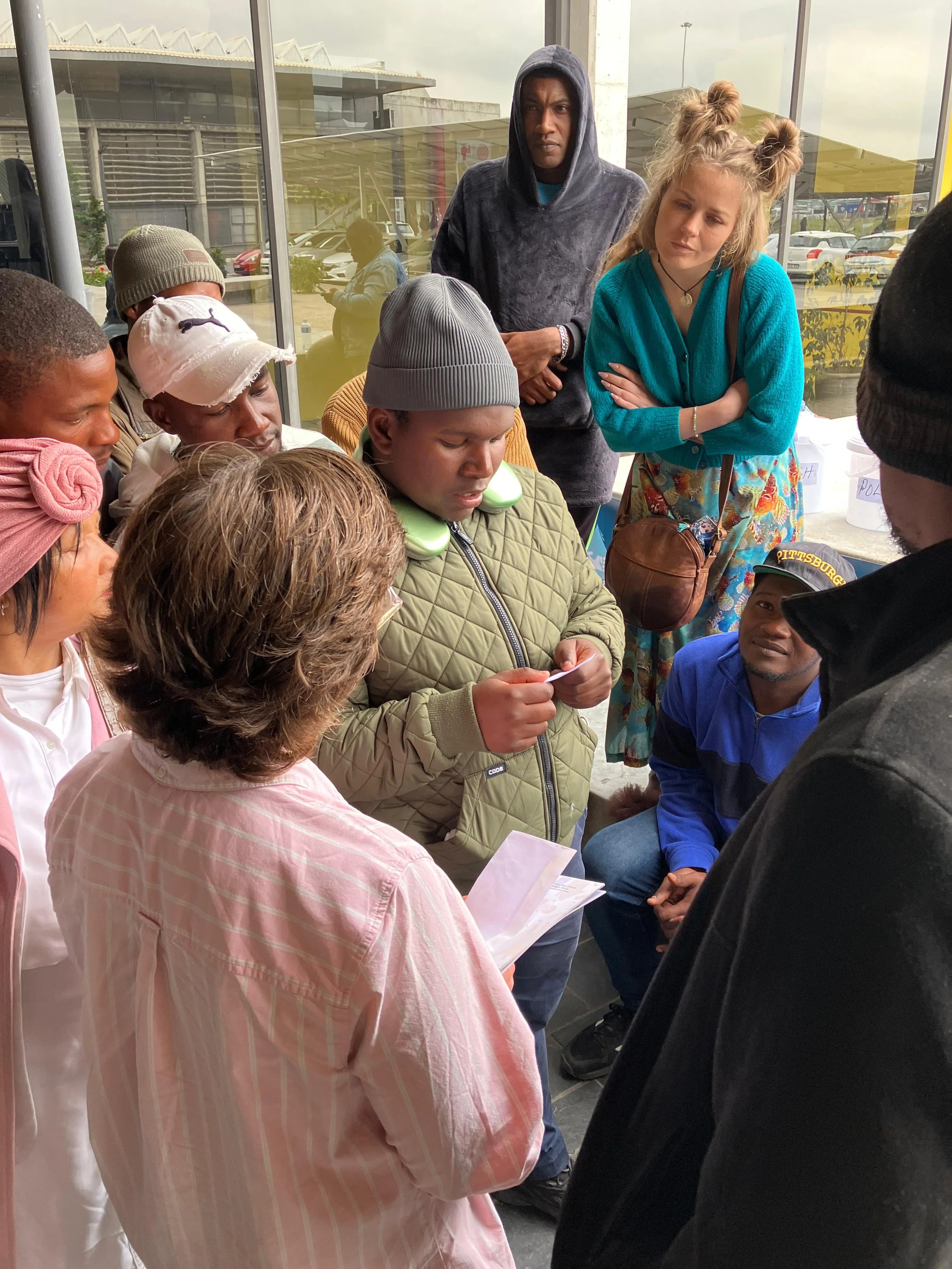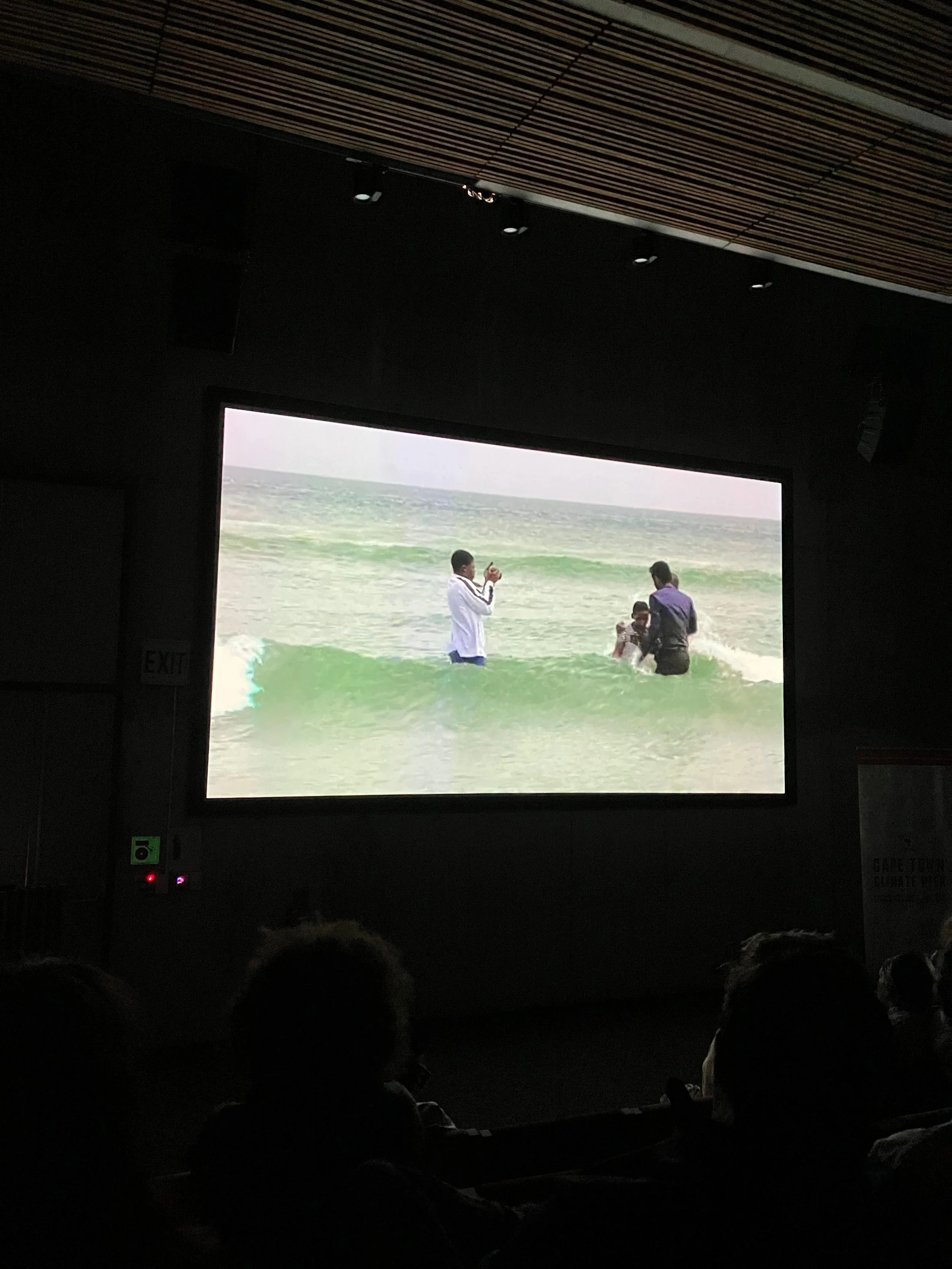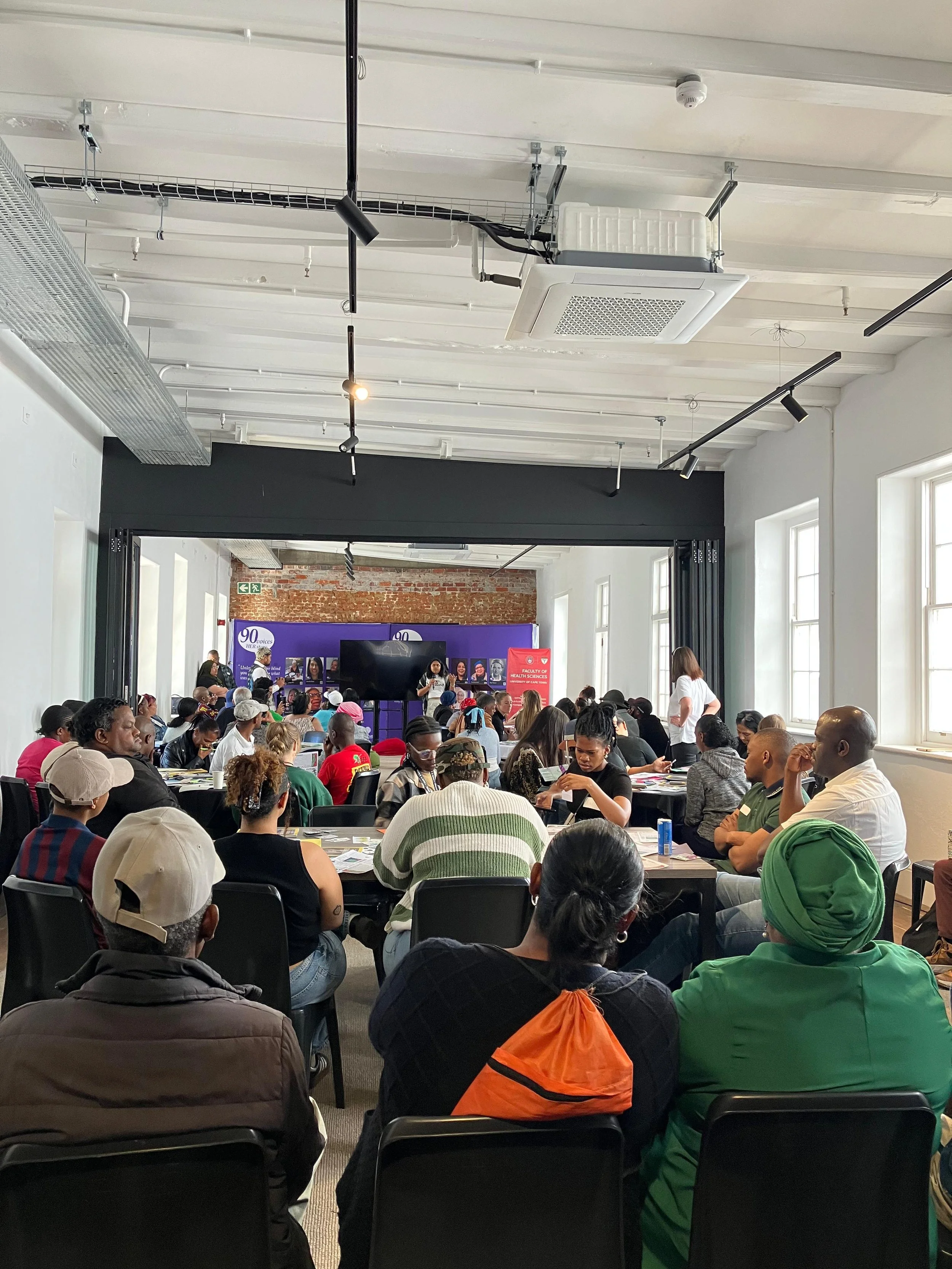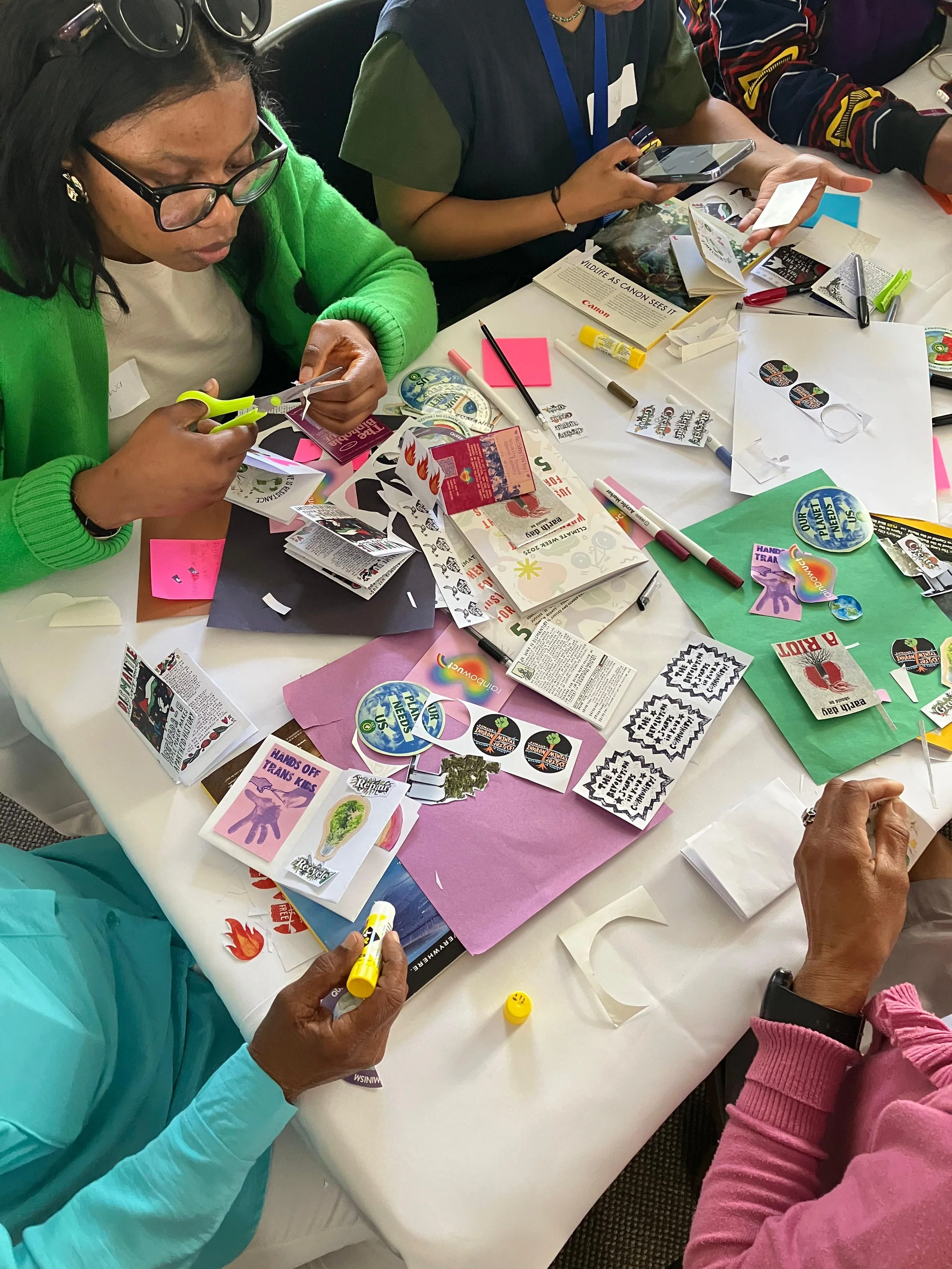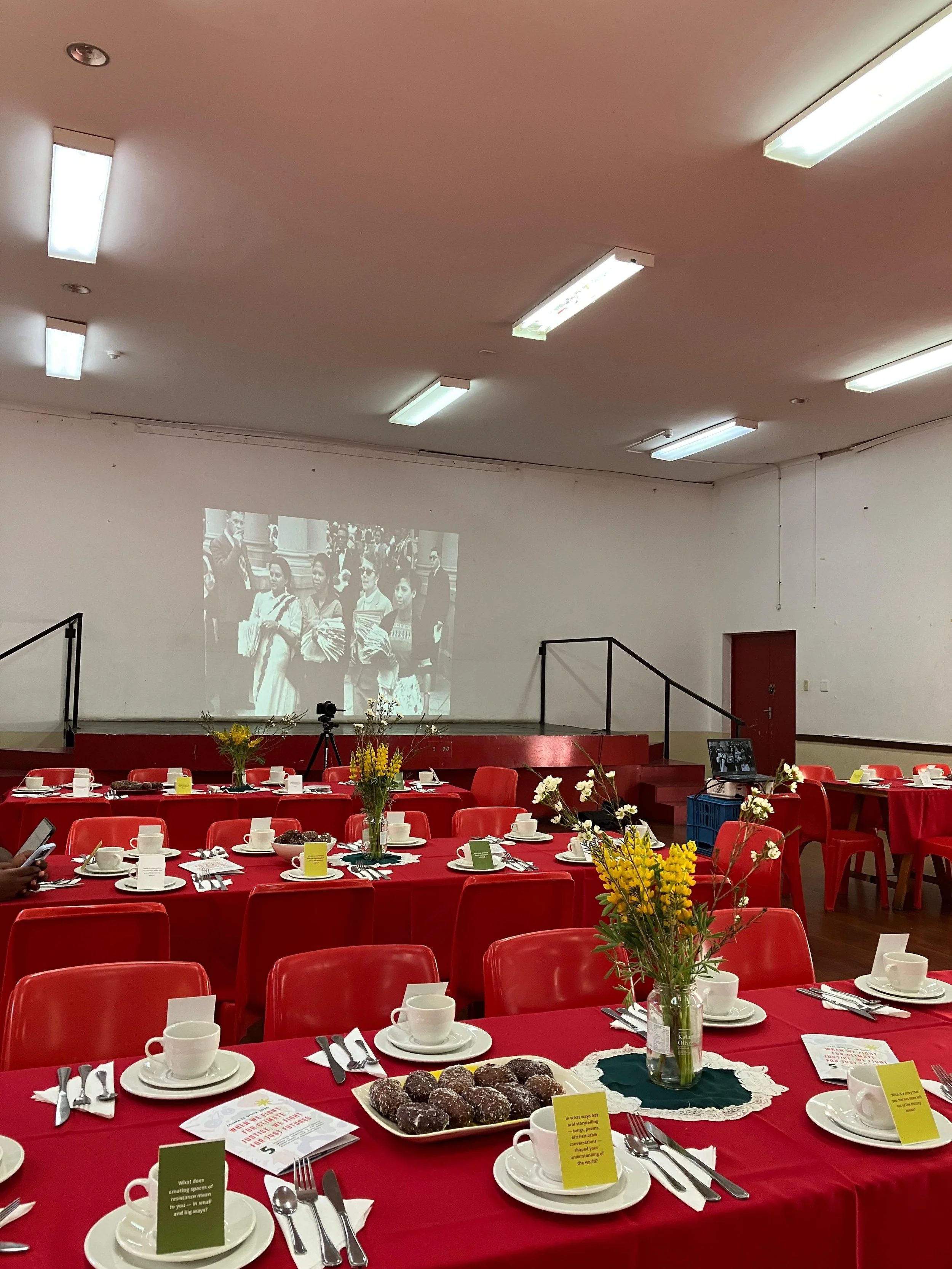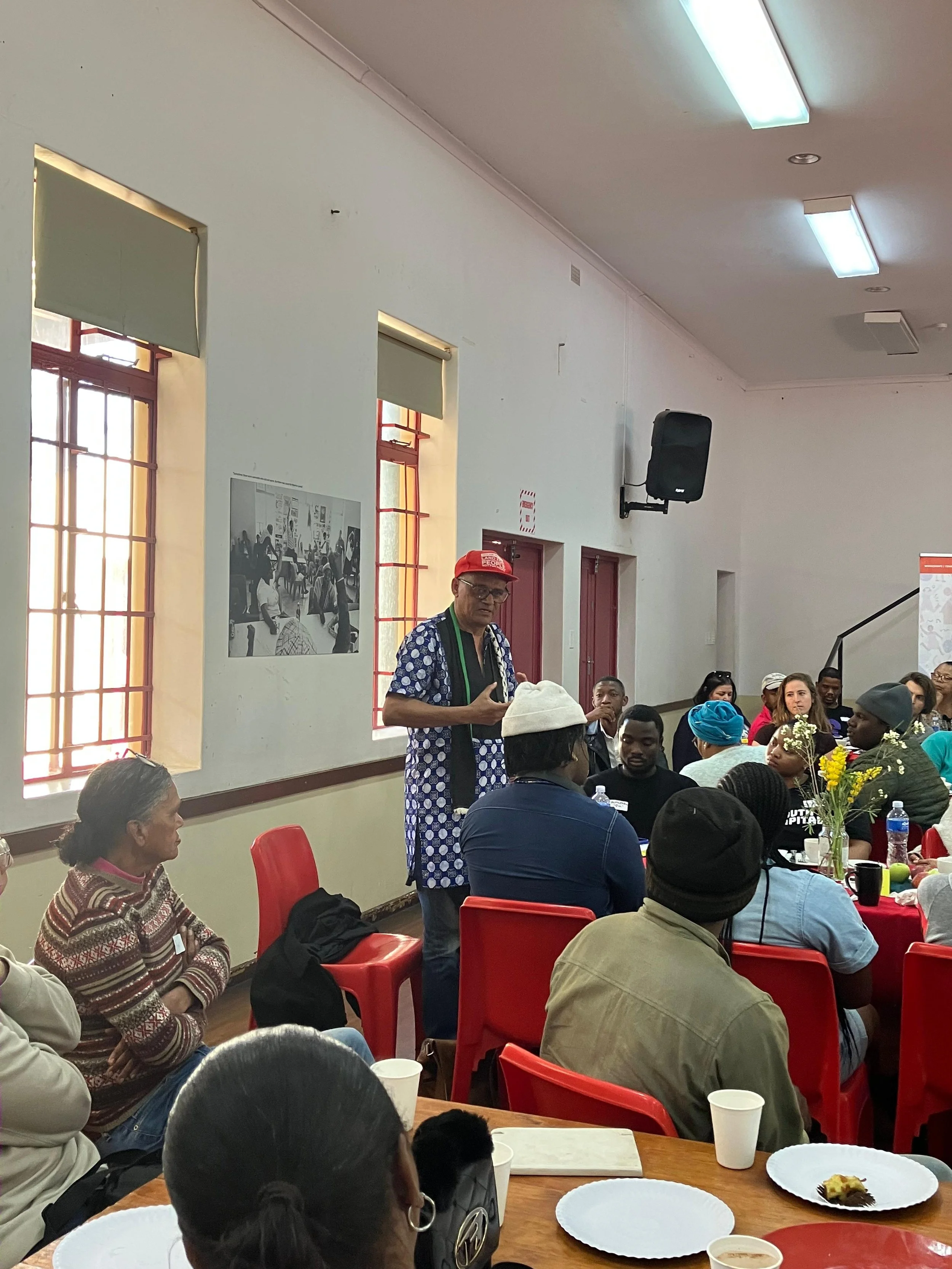Cape Town Climate Week 2025 Concludes, Celebrating Community-Led Solutions for Climate and Social Justice
Highlights from Cape Town Climate Week 2025
Cape Town Climate Week participants at the Oppie Yaart garden, part of the Queer Food Growing Collective, in Elsies River learning about reclaiming connections to land and indigenous practices. Photo credit: The Dollie House
Growing in traction and growing numbers, the fourth annual Cape Town Climate Week showed that climate change isn’t just about weather, and climate action isn’t reserved for environmentalists who went to school in leafy suburbs.
Last week, saw over 500 activists, community leaders, students, and citizens move around the city. Across 8 events, we journeyed from Mowbray to Langa, Elsies River, Delft, Mitchells Plain, Muizenberg, Khayelitsha, and Salt River — all while learning about the connections between climate change and social injustices and being exposed to organisations as the forefront of solutions.
Building on South Africa’s long history of grassroots organising to challenge systems of power and catalyse change, we spoke to people running community gardens, organising water action committees, advocating for a just transition from the ground up, and building houses that are able to deal with the effects of floods and fires.
Here are a few of the highlights:
Day 1: Climate Justice is Spatial Justice
Day 1 of Cape Town Climate Week 2025 showed us why the fight for climate justice is also a fight for spatial justice.
South Africa’s history of spatial injustice reflects the legacy of colonialism and Apartheid, which enforced segregation and unequal access to resources. The climate crisis is a human rights crisis, and it amplifies these inequalities even further. But Climate Week is all about connecting the dots and exploring ways to take action.
From cycling through a segregated city, to exploring climate-resilient housing, to watching a screening of ‘Boube of the Fulani’, we saw how borders, migration, transport, land, and housing shape who feels the harshest impacts of climate change — and how communities are building solutions.
Day 2: Sowing Seeds for System Change City Tour
Day 2 of Cape Town Climate Week took us on a journey through Elsies River, Delft, and Mitchells Plain — where communities are reclaiming land, seed, and food as a tool for justice, freedom, and resilience.
Despite legal protections for the right to food, millions in South Africa face severe poverty and malnutrition. Food insecurity is driven by widespread poverty and unemployment, which is worsened by inequities rooted in historical disparities and climate change. Climate change does not just reduce food availability; it erodes communities’ autonomy over food production, reinforcing structural inequalities in land access, water control, and economic power.
From listening to stories of growers and getting our hands in the soil, to celebrating the launch of a seed library in Mitchells Plain and sharing a farm-to-table lunch, we witnessed how food connects us all — and why food justice means more than what’s on your plate. It’s about land, power, and the right to thrive.
Day 3: Energy Justice Climate Café
On Day 3 of Cape Town Climate Week, 70 people turned a café into a powerful teach-in. Together, we unpacked how to hold those in power accountable and imagine more just, people-centered energy systems.
We also dug into how the fossil fuel industry has delayed climate action for too long, with young people and marginalized communities paying the highest price. We uncovered the industry’s lobbying, misinformation, and greenwashing tactics, celebrated wins for accountability, and built collective power for energy justice.
Day 4: Ripples for Change Screening and World Water Game
On Day 3 of Cape Town Climate Week, we shifted our attention to water justice. From watching the ‘Capturing Water’ documentary to jumping into The World Water Game, we explored what water justice means in our communities and how it connects to the climate crisis.
We talked about water justice as a fundamental human right that many are being deprived of, and why we need to revive street committees and community organisations to tackle the privatisation and state inaction around our precious life source.
Day 5: Gender and Planetary Health Teach-In
On Day 5 of Climate Week, we focused on the intersection of climate and gender justice. We explored how the climate crisis threatens health and wellbeing, and how these impacts are worsened by patriarchy and queerphobia — with especially harsh consequences for women and marginalized genders.
To prompt reflection, we engaged in a creative zine-making exercise, and university students shared their research on how the climate crisis intersects with gender, food, and healthcare access.
Day 6: Tea Between Generations – Building Movements with Courage and Care
To close Cape Town Climate Week, almost 100 people joined us at Community House to have tea and listen to the stories of older comrades who have been involved in historic struggle movements to learn how the youth can continue the good fight for a more just world.
Across all the stories, the need for unity was the golden thread. We need to find ways to connect and unite across class, culture, and lived experience, because we are all fighting the same enemy — systems of injustice that perpetuate inequality and oppression.
Key Takeaways
Climate justice is social justice: The week showed how climate change amplifies inequalities in housing, transport, and land access, making climate action inseparable from addressing South Africa’s historical and spatial injustices.
Youth leadership: Young people's involvement throughout the week demonstrated their crucial role in shaping a more just and sustainable future.
Community-led solutions: Grassroots organisers showcased practical responses, like seed libraries, community gardens, and local water committees, that reclaim control over food, land, and resources to build resilience.
Energy and water justice: Teach-ins and games exposed fossil-fuel industry delays and highlighted the need for accountable, people-centered energy systems and protection of water as a fundamental right.
Intergenerational solidarity: The closing “Tea Between Generations” emphasized unity across age, class, culture, and gender, showing that a just climate future depends on shared leadership and collective care.
Looking Forward
At the African Climate Alliance, we work with youth in Cape Town, South Africa, and across the continent to create active citizenry and inspire them to take climate action by connecting the dots between climate change and our many social crises. We want to show that the climate crisis is not just about changing weather patterns, but it’s a human rights crisis that amplifies existing inequalities and touches our lives when it comes to how we access food, water, energy, housing, transport around the city, and impacts gender inequity. This is the beginning of a broader movement towards a more just and sustainable city.
Partner organisations included Langa Bicycle Hub, Ndifuna Ukwazi, STEPS, Generation Africa, Queer Food Growing Collective, Feed the Future, Mzanzi Organics, SEED Community, Seed Biblioteek, Project 90 by 2030, Fossil Free SA, Alternative Information and Development Centre, African Water Commons Collective, Rainbow UCT, and Dismantle The Ivory Tower.

